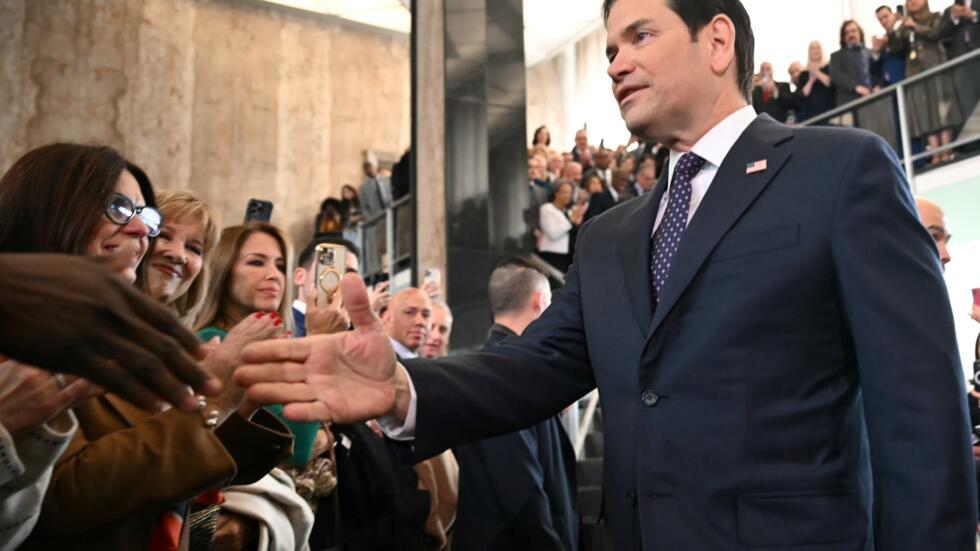News Flash
News Flash

WASHINGTON, Feb 1, 2025 (BSS/AFP) - Marco Rubio heads Saturday to Panama on his debut trip abroad as US secretary of state as he looks for how to follow up on President Donald Trump's extraordinary threat to seize the Panama Canal.
Rubio's travel comes the same day that Trump's promised tariffs on the three largest US trading partners -- Canada, Mexico and China -- are set to come into effect, another step showing a far more aggressive US foreign policy.
Rubio will travel later to four other small Latin American countries for an agenda focused on migration, a highly unusual first trip for the top US diplomat, whose predecessors were more likely to start the job with language of cooperation with major allies.
Trump has refused to rule out military force to seize the Panama Canal, which the United States handed over at the end of 1999, saying that China has exerted too much control through its investment in surrounding ports.
In his inaugural address, Trump said that the United States will be "taking it back" -- and he refused to back down Friday.
"They've already offered to do many things," Trump said of Panama, "but we think it's appropriate that we take it back."
He alleged that Panama was taking down Chinese-language signs to cover up how "they've totally violated the agreement" on the canal.
"Marco Rubio is going over this talk to the gentleman that's in charge," Trump told reporters.
Panamanian President Jose Raul Mulino, generally considered an ally of the United States, has ruled out opening negotiations after complaining to the United Nations about Trump's threat.
"I cannot negotiate, much less open a process of negotiations on the canal," Mulino said Thursday.
The issue "is sealed. The canal is Panama's," Mulino said.
Mulino's government, however, has ordered an audit of CK Hutchison Holdings, the Hong Kong company that operates ports on both sides of the canal.
- What does 'taking it back' mean? -
It remains to be seen if or how Rubio carries out the threat. Some experts believe that Trump was simply applying pressure and could declare a win by the United States ramping up investment in the canal -- an outcome that most Panamanians would welcome.
Rubio has played down the military option but also not contradicted his boss.
"I think the president's been pretty clear he wants to administer the canal again. Obviously, the Panamanians are not big fans of that idea," Rubio told SiriusXM radio in an interview before the trip.
He acknowledged that Panama's government "generally is pro-American" but said that the Panama Canal is a "core national interest for us."
"We cannot allow any foreign power -- particularly China -- to hold that kind of potential control over it that they do. That just can't continue," Rubio said.
The canal remains the crucial link between the Atlantic and Pacific oceans and coasts, with 40 percent of US container traffic going through it.
Trump administration officials said they were blaming not Mulino but previous Panamanian president Juan Carlos Varela who in 2017 -- during Trump's first term as president -- moved to sever ties with Taiwan in favor of China.
"It wasn't just a diplomatic recognition. He literally opened the floodgates and gave strategic assets throughout the Canal Zone to China," said Mauricio Claver-Carone, the US special envoy on Latin America.
He charged that Panama unfairly raised costs for US ships while also seeking assistance from the United States for canal upkeep. Panama attributes rising costs to the effects of a drought, exacerbated by climate change.
Trump has quickly made clear he will exercise swift pressure to bend other countries to his will, especially on his signature issue of deporting undocumented immigrants.
On Sunday, he threatened major tariffs against Colombia to force its president to back down after he insisted that repatriated migrants be treated in a more dignified way.